Michael Zehaf-Bibeau: gunman 'furious' over passport delay
Mother of Ottawa gunman Zehaf-Bibeau says she had not seen son for five years until last week
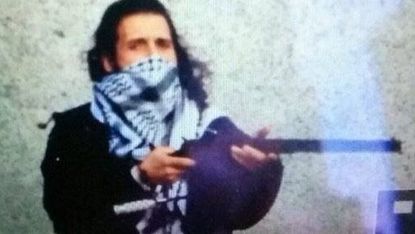
New details have emerged about Michael Zehaf-Bibeau, the gunman who launched an attack on Canada's parliament building on Wednesday.
Zehaf-Bibeau killed a 24-year-old soldier, Corporal Nathan Cirillo, who was guarding the National War Memorial in Ottawa, before racing into the parliament building and firing up to 50 shots, said witnesses.
He was shot dead by Sergeant-at-Arms Kevin Vickers, who normally plays only a ceremonial role in the House of Commons. But at least three people were wounded and gunshots were fired outside a room where Prime Minister Stephen Harper was speaking. It emerged yesterday that Harper hid in a cupboard for about 15 minutes during the attack as MPs sharpened flagpoles to use as spears.
Subscribe to The Week
Escape your echo chamber. Get the facts behind the news, plus analysis from multiple perspectives.

Sign up for The Week's Free Newsletters
From our morning news briefing to a weekly Good News Newsletter, get the best of The Week delivered directly to your inbox.
From our morning news briefing to a weekly Good News Newsletter, get the best of The Week delivered directly to your inbox.
Liberal Senator Jim Munson told reporters that, unlike the UK and US, Canada does not have armed security outside parliament. "We've lost our innocence as a nation," he said.
The shooting was the second attack on Canadian soldiers in just a week. On Monday, 25-year-old Muslim convert Martin Rouleau-Couture was shot after running down two soldiers with his car in the Quebec town of Saint-Jean-sur-Richelieu. One of the soldiers later died.
But just who is Zehaf-Bibeau and was he acting alone?
Who is Michael Zehaf-Bibeau?
The 32-year-old was reportedly born and raised in Quebec, and later spent time in Libya and various regions of Canada as a labourer. He converted to Islam and became a homeless drug addict.
Does he have a family?
Zehaf-Bibeau's father is believed to be Bulgasem Zehaf, a Quebec businessman who appears to have fought in 2011 in Libya, and Susan Bibeau, the deputy chair of a division of Canada's Immigration and Refugee Board. His mother issued a statement yesterday to say she had met with her son for the first time in five years last week and therefore has "very little insight to offer". She sent her deepest condolences to the family of Corporal Cirillo and said she was "mad" at her son. "I don't understand and part of me wants to hate him at this time." She added that Zehaf-Bibeau was "lost and did not fit in".
Was Zehaf-Bibeau known to police?
Canadian newspapers have been digging up court files related to the name Michael Zehaf-Bibeau. He appears to have had multiple run-ins with the police for petty crimes, including possession of drugs and robbery. Sources told the Globe and Mail newspaper that Zehaf-Bibeau had recently been designated a "high-risk traveller" by the Canadian government and blocked from travelling abroad. He apparently had plans to go to Libya to study and learn Arabic but was unable to secure the appropriate travel documents. "Unlike other Canadian home-grown terrorist suspects, Mr Zehaf-Bibeau had no obvious web presence," adds the National Post. Police believe he turned to the black market to buy the Winchester 30-30 lever action rifle used on Wednesday as his lengthy criminal record prevented him from owning firearms.
What was his motivation?
Police are still investigating, but the delay in his passport application is being seen as a possible driving force. Bob Paulson, commissioner at the Royal Canadian Mounted Police, yesterday said that Zehaf-Bibeau had moved to Ottawa on 2 October seeking a new passport, claiming he wanted to travel to Libya. He stayed at the Ottawa Mission, a local homeless shelter, before carrying out the attack. "He went on for more than an hour about how much this country sucked and how he wanted to get out of here, and he was furious about the passport," one resident told the Canadian Press. Another resident said Zehaf-Bibeau was "desperate" to get hold of a car. He brought a brown Toyota Corolla the day before the attack. Police say he appeared to have "intentions" for the vehicle but have refused to give further details.
Was he mentally stable?
Dave Bathurst, who met Zehaf-Bibeau in a mosque three years ago, claimed his friend was "mentally ill". He told the Globe and Mail: "We were having a conversation in a kitchen, and I don't know how he worded it: He said the devil is after him." Bathurst added that Zehaf-Bibeau did not at first appear to have extremist views or inclinations toward violence. The newspaper says the suspect underwent a psychiatric assessment ahead of a robbery conviction in Vancouver in 2011 and was found fit to stand trial.
Was he on drugs?
According to the 2011 psychiatric assessment, Zehaf-Bibeau wanted to go to jail to overcome his addiction to crack cocaine. "He has been a devoted Muslim for seven years and he believes he must spend time in jail as a sacrifice to pay for his mistakes in the past and he hopes to be a better man when he is eventually released," the psychiatrist wrote on 18 December 2011. According to court records, seen by CBC, he told the judge himself: "I wanted to come to jail so I could clean up." One man who bonded with Zehaf-Bibeau at the Ottawa Mission in the weeks before the attack said he was using prayer to "heal himself from drugs" but that the temptation had overcome him. He believed Zehaf-Bibeau was "sharp-minded" and that his problems originated from drugs, not mental health problems.
Was he acting alone?
Canadian Prime Minster Stephen Harper has described the attack as a "terrorist" act, but so far no group has come forward to claim responsibility. Harper said that it remains unclear whether the suspect acted alone. The BBC points out that the attack came just weeks after Canada announced plans to join the US-led campaign of air strikes against Islamic State. However, the Canadian government has said there is no evidence so far that he was linked to IS.
Create an account with the same email registered to your subscription to unlock access.
Sign up for Today's Best Articles in your inbox
A free daily email with the biggest news stories of the day – and the best features from TheWeek.com
-
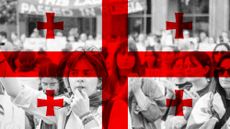 Georgia's new foreign influence bill
Georgia's new foreign influence billUnder the Radar Critics claim the 'Russian law' could stifle dissent and wreck the country's chances of joining the EU
By Elliott Goat, The Week UK Published
-
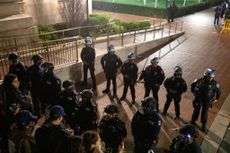 'Making a police state out of the liberal university'
'Making a police state out of the liberal university'Instant Opinion Opinion, comment and editorials of the day
By Harold Maass, The Week US Published
-
 8 looming climate tipping points that imperil our planet
8 looming climate tipping points that imperil our planetThe Explainer New reports detail the thresholds we may be close to crossing
By Devika Rao, The Week US Published
-
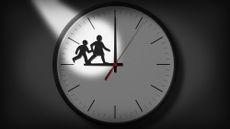 Do youth curfews work?
Do youth curfews work?Today's big question Banning unaccompanied children from towns and cities is popular with some voters but is contentious politically
By Harriet Marsden, The Week UK Published
-
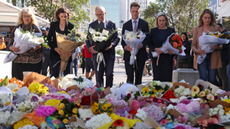 Sydney mall attacker may have targeted women
Sydney mall attacker may have targeted womenSpeed Read Police commissioner says gender of victims is 'area of interest' to investigators
By Julia O'Driscoll, The Week UK Published
-
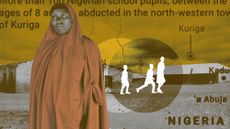 Why are kidnappings in Nigeria on the rise again?
Why are kidnappings in Nigeria on the rise again?Today's Big Question Hundreds of children and displaced people are missing as kidnap-for-ransom 'bandits' return
By Julia O'Driscoll, The Week UK Published
-
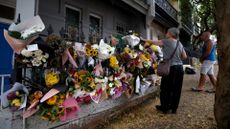 Deaths of Jesse Baird and Luke Davies hang over Sydney's Mardi Gras
Deaths of Jesse Baird and Luke Davies hang over Sydney's Mardi GrasThe Explainer Police officer, the former partner of TV presenter victim, charged with two counts of murder after turning himself in
By Austin Chen, The Week UK Published
-
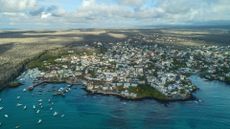 How the idyllic Galapagos Islands became staging post in world drug trade
How the idyllic Galapagos Islands became staging post in world drug tradeUnder the radar Ecuador's crackdown on gang violence forces drug traffickers into Pacific routes to meet cocaine demand
By Harriet Marsden, The Week UK Published
-
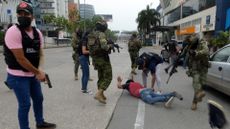 Armed gangs, prison breaks and on-air hostages: how Ecuador was plunged into crisis
Armed gangs, prison breaks and on-air hostages: how Ecuador was plunged into crisisThe Explainer Gangs launch deadly revenge after president declares state of emergency following escape of feared drug boss from prison
By Harriet Marsden, The Week UK Published
-
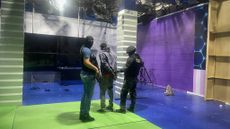 Ecuador tips toward chaos amid prison breaks, armed TV takeover
Ecuador tips toward chaos amid prison breaks, armed TV takeoverSpeed Read New President Daniel Noboa authorized the military to 'neutralize' powerful drug-linked gangs after they unleashed violence and terror across Ecuador
By Peter Weber, The Week US Published
-
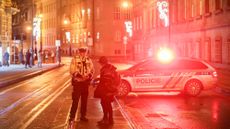 Prague shooting: student kills 14 people at university
Prague shooting: student kills 14 people at universitySpeed reads Police believe suspect, who killed himself, may have shot his father before carrying out mass murder
By Arion McNicoll, The Week UK Published